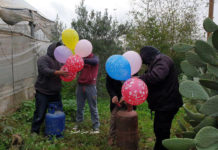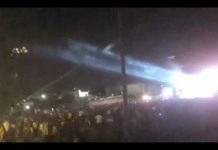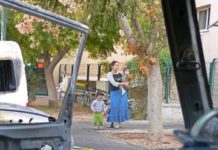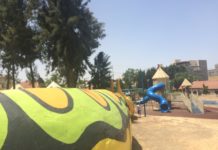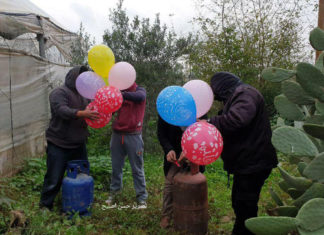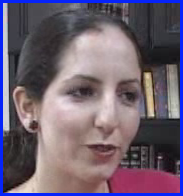
This time I actually felt that for the first time the group was finally beginning to bond. Sixteen girls arrived at the designated time. The hesitation and the curiosity the girls felt towards one another was apparent. Debbie, the psychologist, Nechama the social worker, and I, the project director, shared the same mixed feelings about today’s meeting with the group.
Debbie opened the session with an icebreaker. She introduced the girls to a teddy bear she brought along and explained that anyone who held the teddy bear had the right to speak.
Next, Debbie and Nechama showed the girls how to play a game with special cards. Each girl was asked to take a card from each one of two piles. The first pile of cards had questions such as: how do I relate to this card? How does it represent the reality I live in? The second pile had cards asking questions related to the theater project, such as the expectations from it. The girls were also asked to try and find a common denominator between the two pile of cards.
Since the group combined girls from different classes and grades, it was hard for the girls to open up to each other at the beginning. This factor will be taken into consideration at the next meeting, when placing together a similar group.
In any case, the girls began sharing their feelings with each other, using the teddy bear and the cards. They talked about the difficult experiences that are a byproduct of a life under continues fire, their disfavor of the governments promises and expressed much disbelief in the government and its’ ability to acquire deterrence.
Asif, one of the girls, shared her feelings regarding the last operation in Gaza: “I feel like the operation helped but not as much as I hoped. The security reality here is very unstable. Even if there is some quite now, no one guaranties that it will still be quiet tomorrow.” Liora, one of the other girls added: “the last ceasefire enabled the Hamas to arm themselves, and I don’t want this ceasefire to be fake like that one”.
The girls expressed the importance of the project for them, and their willingness to share with others their everyday reality, even if it is difficult.
Lidor explained that, “it is important to talk about what we went through, to expose what happened and be real with ourselves. Even if it is difficult to share, it is the best way to cope with the situation”.
Nechama, the social worker at the help center added: “we have the ability to choose how to deal with the situation. We can point out the positive aspect in any reality, even if it is difficult to find. In the session we touched painful aspects of running away and the inability to cope.”
Debbie chose to express the concept of fleeing or escaping, (Brecha in Hebrew) which has a negative connotation of running away–in a more positive light. By changing the letters around in the word Brecha (escape) to Bricha (pool), Debby emphasized that human beings have the power to decide how to cope with situation.
While many families and children have difficulties coping with the rocket fire and many times are forced to leave Sderot temporarily, Debbie explained that these actions do not necessarily signify weakness. “It is our ability to decide in what way we want to cope with things. This does not mean that whoever gets up and leaves is weak. Instead, by changing the letters in Brecha to Bricha, the word takes on a new meaning-pool, indicating that we wish to find some quiet and peace to enable us to move on.
The girls grasped the concept immediately. Rotem emphasized her special ability in coping with the situation: “I use a lot of laughter and humor to deal with the security issue. Many times when there is a “Color Red” siren, we repeat it and start laughing. It’s very liberating and makes the fear go away”.
At the end of the meeting Nechama gave out some sweets and Debbie asked each of the girls to sum up the meeting. The girls said that the meeting made them “feel good”, and Tal one of the girls said: “for me, the theater is a new beginning, a new way to cope with the situation as a project in general”.
We, as the instructors, agreed with every word.
*Translated by Avital Mimran-Rosenberg
For more information on the Sderot Community Treatment Theater Project 2009, see: http://www.sderotmedia.com/bin/content.cgi?ID=193&q=3 .



